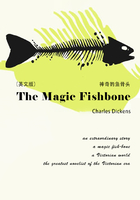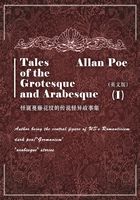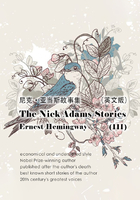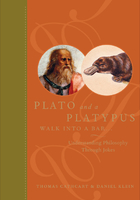Metaphysics
Metaphysics tackles the Big Questions head on:
What is being? What is the nature of reality? Do we have
free will? How many angels can dance on the head of a pin?
How many does it take to change a lightbulb?
DIMITRI: Something's been bothering me lately, Tasso.
TASSO: What's that?
DIMITRI: What is the meaning of it all?
TASSO: All what?
DIMITRI: You know, life, death, love-the whole stuffed grape leaf.
TASSO: What makes you think any of it has any meaning?
DIMITRI: Because it has to. Otherwise life would just be…
TASSO: What?
DIMITRI: I need an ouzo.
TELEOLOGY
Does the universe have a purpose?
According to Aristotle, everything has a telos, which is an inner goal it is meant to attain. An acorn has a telos: an oak tree. It's what an acorn is "meant to be." Birds have one; bees have one. They say that down in Boston even beans have one. It's part of the very structure of reality.
If that seems a little abstract, in the following story Mrs. Goldstein telescopes the telos down to earth.
Mrs. Goldstein was walking down the street with her two grandchildren. A friend stopped to ask her how old they were.
She replied, "The doctor is five and the lawyer is seven."
Does human life have a telos?
Aristotle thought so. He thought the telos of human life is happiness, a point disputed by other philosophers throughout human history. St. Augustine, seven centuries later, thought the telos of life is to love God. To a twentieth-century existentialist like Martin Heidegger, man's telos is to live without denial of the true human condition, particularly death. Happiness? How shallow!
Meaning-of-life jokes have multiplied as fast as meanings of life, which in turn have multiplied as fast as philosophers.
A seeker has heard that the wisest guru in all of India lives atop India's highest mountain. So the seeker treks over hill and Delhi until he reaches the fabled mountain. It's incredibly steep, and more than once he slips and falls. By the time he reaches the top, he is full of cuts and bruises, but there is the guru, sitting cross-legged in front of his cave.
"O, wise guru," the seeker says, "I have come to you to ask what the secret of life is."
"Ah, yes, the secret of life," the guru says. "The secret of life is a teacup."
"A teacup? I came all the way up here to find the meaning of life, and you tell me it's a teacup!"
The guru shrugs. "So maybe it isn't a teacup."
This guru is acknowledging that formulating the telos of life is a slippery business. Furthermore, it's not everybody's cup of tea.
There is a distinction between the telos of life-what human beings are meant to be-and a particular individual's goals in life-what he wants to be. Is Sam, the dentist in the following story, really seeking the universal telos of life or simply doing his own thing? His mom clearly has her own idea of the telos of her son's life.
A Philadelphia dentist, Sam Lipschitz, went off to India to find the meaning of life. Months went by and his mother didn't hear a word from him. Finally, she took a plane to India and asked for the wisest man there. She was directed to an ashram, where the guard told her that she would have to wait a week for an audience with the guru, and at that time she would only be allowed to speak three words to him. She waited, carefully preparing her words. When she was finally ushered in to see the guru, she said to him, "Sam, come home!"
Look up "metaphysics" in the dictionary and it tells you the word stems from the title of a treatise by Aristotle and that it deals with questions at a level of abstraction beyond (meta) scientific observation. But this turns out to be a case of what is known in Latin as post hoc hokum. In fact, Aristotle didn't call his treatise "metaphysics" at all, let alone because it dealt with questions beyond the purview of science. Actually, it was given that name in the first century A.D. by an editor of Aristotle's collected works, who chose the title because that chapter was "beyond" (i.e., came after) Aristotle's treatise on "Physics."
ESSENTIALISM
What is the structure of reality? What specific attributes make things what they are? Or as philosophers are wont to say, What attributes make things not what they aren't?
Aristotle drew a distinction between essential and accidental properties. The way he put it is that essential properties are those without which a thing wouldn't be what it is, and accidental properties are those that determine how a thing is, but not what it is. For example, Aristotle thought that rationality was essential to being a human being and, since Socrates was a human being, Socrates's rationality was essential to his being Socrates. Without the property of rationality, Socrates simply wouldn't be Socrates. He wouldn't even be a human being, so how could he be Socrates? On the other hand, Aristotle thought that Socrates's property of being snubnosed was merely accidental; snub-nosed was part of how Socrates was, but it wasn't essential to what or who he was. To put it another way, take away Socrates's rationality, and he's no longer Socrates, but give him plastic surgery, and he's Socrates with a nose job. Which reminds us of a joke.
When Thompson hit seventy, he decided to change his lifestyle completely so that he could live longer. He went on a strict diet, he jogged, he swam, and he took sunbaths. In just three months' time, Thompson lost thirty pounds, reduced his waist by six inches, and expanded his chest by five inches. Svelte and tan, he decided to top it all off with a sporty new haircut. Afterward, while stepping out of the barbershop, he was hit by a bus.
As he lay dying, he cried out, "God, how could you do this to me?"
And a voice from the heavens responded, "To tell you the truth, Thompson, I didn't recognize you."
Poor Thompson seems to have changed certain accidental properties of himself, although we recognize that he is still essentially Thompson. So does Thompson for that matter. In fact, both of these conditions are essential to the joke. Ironically, the only character in the joke who does not recognize Thompson is God, who you'd think would be essentially omniscient.
The distinction between essential and accidental properties is illustrated by a number of other jokes in this vein.
Abe: I got a riddle for you, Sol. What's green, hangs on the wall, and whistles?
Sol: I give up.
Abe: A herring.
Sol: But a herring isn't green.
Abe: So you can paint it green.
Sol: But a herring doesn't hang on the wall.
Abe: Put a nail through it, it hangs on the wall.
Sol: But a herring doesn't whistle!
Abe: So? It doesn't whistle.
The following version probably won't garner you many yuks at Caroline's Comedy Club, but it may win you a few points at the American Philosophical Association's annual meeting.
Abe: What is the object "X" that has the properties of greenness, wall-suspension, and whistling capability?
Sol: I can't think of anything that fits that description.
Abe: A herring.
Sol: A herring doesn't have greenness.
Abe: Not as an essential property, Solly. But a herring could be accidentally green, no? Try painting it. You'll see.
Sol: But a herring doesn't have wall-suspension.
Abe: But what if you accidentally nail it to the wall?
Sol: How could you accidentally nail a herring to the wall?
Abe: Trust me. Anything's possible. That's philosophy.
Sol: Okay, but a herring doesn't whistle, even accidentally.
Abe: So sue me.
Sol and Abe turn to face the A.P.A. audience, which is totally silent.
Sol: What is this, a convention of Stoics? Hey, Nietzsche got bigger laughs when he played the Vatican.
Sometimes an object has properties that at first blush seem to be accidental, but turn out to be accidental only within certain limits, as illustrated in this gag.
"Why is an elephant big, gray, and wrinkled?"
"Because if he was small, white, and round, he'd be an aspirin."
We can picture an elephant on the small side; we'd call it "a small elephant." We can even picture an elephant a sort of dusty brown; we would call it "a sort of dusty-brown elephant." And an elephant without wrinkles would be "an unwrinkled elephant." In other words, bigness, grayness, and wrinkledness all fail Aristotle's test of defining what an elephant essentially is. Instead they describe how elephants are, generally and accidentally. The joke says, though, that this is true only up to a point. Something as small, white, and round as an aspirin cannot be an elephant, and confronted with such an object, we would not be tempted to ask, "Is that an aspirin you're taking, Bob, or an atypical elephant?"
The point is that bigness, grayness, and wrinkledness are not precise enough terms to be the essential qualities of an elephant. It's a certain size range and a certain color range that, among other qualities, determine whether or not something is an elephant. Wrinkledness, on the other hand, may be a red herring, or perhaps a whistling herring.
RATIONALISM
Now for something completely different-a school of metaphysics that has produced literally volumes of satire without any help from us. There's only one problem: The jokes all miss the point.
When the seventeenth-century rationalist philosopher Gottfried Wilhelm Leibniz famously said, "This is the best of all possible worlds," he opened himself to unmerciful ridicule. It all began in the following century with Candide, Voltaire's very funny novel of a good-natured young man (Candide) and his philosophical mentor, Dr. Pangloss (Voltaire's rendition of Leibniz). In his journeys, young Candide encounters floggings, unjust executions, epidemics, and an earthquake patterned after the Lisbon earthquake of 1755, which had leveled the city. Nothing, however, can shake Dr. Pangloss's insistence that "Everything is for the best in this best of all possible worlds." When Candide sets out to save Jacques, a Dutch Anabaptist, from drowning, Pangloss stops him by proving that the Bay of Lisbon had been "formed expressly for the Anabaptist to drown in."
Two centuries later, Leonard Bernstein's 1956 musical, Candide, added to the joke. The show's best-known song, "The Best of All Possible Worlds," has Pangloss and the cast sing Richard Wilbur's lyrics praising war as a blessing in disguise, because it unites us all-as victims.
Terry Southern and Mason Hoffenberg joined the fun with their ribald version, Candy, about a na?ve young girl, who, despite being taken advantage of by all the men she meets, remains innocent and optimistic. It was made into a 1964 movie with an all-star cast that included philosopher Ringo Starr.
Funny stuff-but, unfortunately, it all misconstrues Leibniz's thesis. Leibniz was a rationalist, a philosophical term-of-trade for someone who thinks that reason takes precedence over other ways of acquiring knowledge (as opposed, for example, to an empiricist, who maintains that the senses are the primary path to knowledge.) Leibniz got to his idea that this is the best of all possible worlds by arguing by reason alone that:
1. There would be no world at all if God had not chosen to create a world.
2. The "principle of sufficient reason" says that when there is more than one alternative, there must be an explanation for why one is the case rather than another.
3. In the case of God's choosing a particular world to create, the explanation must necessarily be found in the attributes of God himself, since there was nothing else around at the time.
4. Because God is both all-powerful and morally perfect, he must have created the best possible world. If you think about it, under the circumstances it was the only possible world. Being all-powerful and morally perfect, God could not have created a world that wasn't the best.
Voltaire, Bernstein et al, and Southern and Hoffenberg all satirize what they take to be Leibniz's meaning: "Everything is hunky-dory." But Leibniz didn't think there was no evil in the world. He merely thought that for God to have created the world in any other way would have resulted in even more evil.
Fortunately, we have a couple of jokes that actually do shed light on Leibniz's philosophy.
An optimist thinks that this is the best of all possible worlds. A pessimist fears that this is so.
The joke implies that the optimist approves of the idea that this is the best of all possible worlds, while the pessimist does not. From Leibniz's rationalist perspective, the world simply is what it is; the joke clarifies the obvious truth that optimism and pessimism are personal attitudes that have nothing to do with Leibniz's neutral, rational description of the world.
The optimist says, "The glass is half full."
The pessimist says, "The glass is half empty."
The rationalist says, "This glass is twice as big as it needs to be."
That makes it clear as glass.
INFINITY AND ETERNITY
It turns out that, however wonderful this world is or isn't, we're only here for a short visit. But short compared to what? An unlimited number of years?
Leibniz goes to the opposite extreme from the God shown at left (not to be confused with God above). Being a rationalist, Leibniz wasn't content to say that anything "just happened," as though something else might just as easily have happened instead. He felt that there must be some reason that made every situation necessary. Why does it rain more in Seattle than in Albuquerque? Because conditions A, B, and C make it impossible for it to be the other way around. Given conditions A, B, and C, it couldn't be any other way. So far most of us would agree with him, especially those of us who live in Seattle. But Liebniz goes on to argue that even those antecedent conditions (A, B, and C) could not have been otherwise. And the ones before them, and before them, and so on and so on and scooby-dooby-doo. This is what he called the "Principle of Sufficient Reason," meaning that the reason any actual state of affairs is actual is that it would be impossible for it to be otherwise. A universe that did not have a disproportionate amount of rain in Seattle and all the conditions that lead to that rain just wouldn't cut it as a universe. It would be chaos; the universe would have no "uni."
The notion of infinity has been confounding metaphysicians for, well, an eternity. Non-metaphysicians, however, have been less impressed.
Two cows are standing in the pasture. One turns to the other and says, "Although pi is usually abbreviated to five numbers, it actually goes on into infinity."
The second cow turns to the first and says, "Moo."
The following joke combines the idea of eternity with another howler of a philosophical concept, relativity:
A woman is told by her doctor that she has six months to live. "Is there anything I can do?" she asks.
"Yes, there is," the doctor replies. "You could marry a tax accountant."
"How will that help my illness?" the woman asks.
"Oh, it won't help your illness," says the doctor, "but it will make that six months seem like an eternity!"
This joke raises the philosophical question, "How could something finite, like six months, possibly be analogous to something infinite, like eternity?" Those who ask this question have never lived with a tax accountant.
DETERMINISM VERSUS FREE WILL
While we are in the here and now, do we have any control over our destiny?
Down through the centuries, much philosophical ink has been spilled over the question of whether human beings are free to decide and act or whether our decisions and actions are determined by external forces: heredity, environment, history, fate, Microsoft.
The Greek tragedians stressed the influence of character and its inevitable flaws in determining the course of events.
When asked whether he believed in free will, twentieth-century novelist Isaac Bashevis Singer replied, tongue-in-cheek, "I have no choice." (This is actually a position that some philosophers have taken with empty cheeks: that we are compelled to believe in our own free will because otherwise there is no basis for our belief in moral responsibility. Our moral choices would be out of our hands.)
Recently, the notion that psychological forces outside our control determine our behavior has eroded the idea of moral responsibility to the point that we now have the "Twinkie defense," in which a defendant claimed that the sugar in his snack compelled him to commit murder. It's "the devil made me do it" dressed up in psychological garb.
Then again, there are some determinists who say, "God made me do it. In fact, God has determined everything in the universe down to the last detail." Baruch Spinoza, the seventeenth-century Dutch/Jewish philosopher, and Jonathan Edwards, the eighteenth-century American theologian, were proponents of this sort of theological determinism. The eagle, the frog, and the truck driver in the following story all probably thought they chose and executed their actions freely.
Moses, Jesus, and a bearded old man are playing golf. Moses drives a long one, which lands on the fairway but rolls directly toward the pond. Moses raises his club, parts the water, and the ball rolls safely to the other side.
Jesus also hits a long one toward the same pond, but just as it's about to land in the center, it hovers above the surface. Jesus casually walks out on the pond and chips it onto the green.
The bearded man's drive hits a fence and bounces out onto the street, where it caroms off an oncoming truck and back onto the fairway. It's headed directly for the pond, but it lands on a lily pad, where a frog sees it and snatches it into his mouth. An eagle swoops down, grabs the frog, and flies away. As the eagle and frog pass over the green, the frog drops the ball, and it lands in the cup for a hole-in-one.
Moses turns to Jesus and says, "I hate playing with your dad."
PROCESS PHILOSOPHY
It had to happen-a philosopher came along who took exception to this notion of a compulsive God who has his finger in everything. Twentieth-century philosopher Alfred North Whitehead argued that not only is God incapable of determining the future-the future will determine him. According to Whitehead's process philosophy, God is neither omnipotent nor omniscient, but is changed by events as they unfold. Or, as the New Agers might say, "God is, like, so evolved."
Alvin is working in his store when he hears a booming voice from above that says, "Alvin, sell your business!" He ignores it. The voice goes on for days saying, "Alvin, sell your business for three million dollars!" After weeks of this, he relents and sells his store.
The voice says, "Alvin, go to Las Vegas!"
Alvin asks why.
"Alvin, just take the three million dollars and go to Las Vegas."
Alvin obeys, goes to Las Vegas, and visits a casino.
The voice says, "Alvin, go to the blackjack table and put it all down on one hand!"
Alvin hesitates but gives in. He's dealt an eighteen. The dealer has a six showing.
"Alvin, take a card!"
"What? The dealer has…"
"Take a card!"
Alvin tells the dealer to hit him, and gets an ace. Nineteen. He breathes easy.
"Alvin, take another card."
"What?"
"TAKE ANOTHER CARD!"
Alvin asks for another card. It's another ace. He has twenty.
"Alvin, take another card!" the voice commands.
"I have twenty!" Alvin shouts.
"TAKE ANOTHER CARD!" booms the voice.
"Hit me!" Alvin says. He gets another ace. Twenty-one!
And the booming voice says, "Un-fucking-believable!"
Hey, there is something appealing about a God who can surprise himself.
THE PRINCIPLE OF PARSIMONY
There has always been an antimetaphysical strain in philosophy, culminating in the triumph of the scientific worldview in the last two centuries. Rudolf Carnap and the Vienna Circle (not a seventies disco group, contrary to popular opinion) went so far as to outlaw metaphysics as nonrational speculation that has been superseded by science.
Rudy and the V.C. took their cue from the fourteenth-century theologian William Occam, who came up with the principle of parsimony, aka "Occam's razor." This principle declares that, "Theories should not be any more complex than necessary." Or, as Occam put it metaphysically, theories should not "multiply entities unnecessarily."
Suppose Isaac Newton had watched the apple fall and exclaimed, "I've got it! Apples are being caught in a tug-of-war between gremlins pulling them up and trolls pulling them down, and trolls are stronger!"
Occam would have retorted, "Okay, Isaac, so your theory does account for all the observable facts, but get with the program-keep it simple!"
Carnap would agree.
One evening after dinner, a five-year-old boy asked his father, "Where did Mommy go?"
His father told him, "Mommy is at a Tupperware party."
This explanation satisfied the boy only for a moment, but then he asked, "What's a Tupperware party, Dad?"
His father figured a simple explanation would be the best approach. "Well, son," he said, "at a Tupperware party, a bunch of ladies sit around and sell plastic bowls to each other."
The boy burst out laughing. "Come on, Dad! What is it really?"
The simple truth is that a Tupperware party really is a bunch of ladies sitting around and selling plastic bowls to each other. But the marketing folks at the Tupperware Corporation, metaphysicians that they are, would have us believe it's more complex than that.
DIMITRI: I ask you one simple question, and you give me ten different answers. It's not exactly helpful.
TASSO: If it's help you want, go see a social worker. I hear they've got loads of them in Sparta.
DIMITRI: No, what I want to know is which answer is true?
TASSO: Aha! Now we're getting somewhere.















